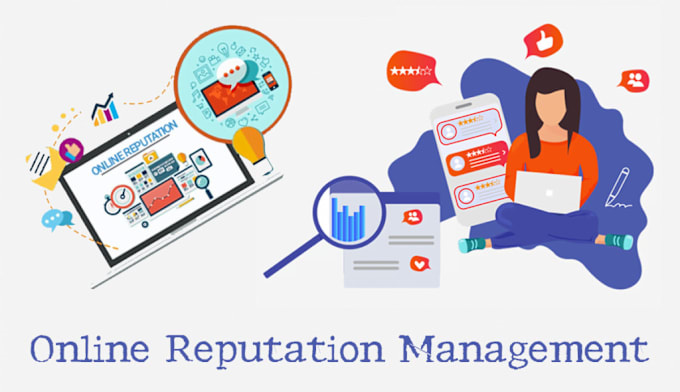Maintaining a strong online reputation is more important than ever. Whether you’re a business or an individual, how you’re perceived online can significantly impact your success. This is where Online Reputation Management (ORM) tools come in. These tools are designed to help you monitor, manage, and improve your digital footprint, ensuring that you stay in control of your online image.
But what is the best way to use these tools to their full potential? Let’s explore the most effective strategies to make the most of ORM tools.
1. Monitor Brand Mentions Regularly for Online Reputation Management Tools
The first and foremost use of ORM tools is to monitor any mentions of your brand or name across the web. Whether it’s social media, news outlets, forums, or review sites, being aware of what people are saying about you is crucial. Tools like ‘Tool-A’ and ‘Tool-B’ allow you to track your brand mentions in real-time, giving you the opportunity to engage with your audience and address any potential issues immediately.
Tip: Set up alerts to notify you whenever your brand is mentioned. This will allow you to respond quickly and show that you’re actively listening to feedback.
2. Manage Online Reviews
Online reviews can make or break your reputation. Negative reviews, if left unattended, can tarnish your image, while positive reviews can enhance trust and credibility. ORM tools allow you to keep an eye on reviews from various platforms and respond promptly. Managing reviews helps you maintain a positive connection with your customers.
With tools like ‘Tool-C,’ you can receive instant notifications whenever a new review is posted. It’s important to respond to both positive and negative reviews in a timely and professional manner. This shows that you value customer feedback and are committed to improving your service.
Tip: Use ORM tools to analyze review trends, helping you identify recurring issues that need attention.
3. Use Sentiment Analysis for Deeper Insights
Many Online Reputation Management Tools offer sentiment analysis, a powerful feature that helps you gauge how people feel about your brand. This feature categorizes mentions and reviews as positive, neutral, or negative, giving you a clear picture of the overall sentiment surrounding your brand.
Understanding sentiment helps you identify what’s working well and where improvements are needed. For example, if sentiment analysis shows a growing number of negative reviews related to customer service, you can take proactive steps to address this issue before it spirals out of control.
Tip: Regularly review sentiment reports to stay ahead of potential problems and keep your brand perception in check.
4. Crisis Management: Be Proactive, Not Reactive
One of the greatest advantages of ORM tools is their ability to help manage crises. In the event of a PR disaster, quick response time is critical. Tools like ‘Tool-D’ offer real-time alerts, ensuring that you’re aware of any negative content or feedback before it gains too much attention.
By staying on top of negative mentions, you can address issues before they escalate, reducing the potential damage to your reputation. A well-crafted response or a quick solution can often turn a crisis into an opportunity for growth.
Tip: Establish a clear crisis management plan and use ORM tools to implement it effectively when needed.
5. Leverage SEO to Control Search Results
ORM tools can also help improve your online reputation by enhancing your search engine results. If negative content appears at the top of search results when someone looks up your brand, it can significantly harm your reputation. However, ORM tools like ‘Tool-E’ allow you to push positive content higher in search rankings, effectively burying negative press or reviews.
Creating and promoting quality content, such as positive news articles, customer testimonials, and blog posts, is key to maintaining a strong online presence. These tools optimize your SEO strategy, ensuring that the most favorable content about your brand is what people see first.
Tip: Regularly publish fresh, high-quality content and use ORM tools to ensure it’s properly optimized for search engines.
6. Automate Reporting for Continued Success
Consistency is essential in online reputation management. To ensure your efforts are paying off, many ORM tools offer automated reports that give you detailed insights into your reputation’s progress over time. This can include metrics such as sentiment changes, top mentions, and overall brand health.
With these reports, you can track improvements, spot new trends, and adjust your ORM strategy as needed. Automated reports save time and ensure you stay informed without having to manually check every platform.
Tip: Schedule weekly or monthly reports to stay up-to-date with your brand’s online reputation.
Conclusion: Taking Control of Your Digital Image
Using ORM tools effectively requires a strategic approach. By actively monitoring your brand mentions, managing reviews, analyzing sentiment, and leveraging SEO, you can maintain a strong online presence that reflects your values and reputation. Whether you’re dealing with a crisis or simply working to improve your brand perception, ORM tools provide the insights and capabilities you need to stay in control of your digital image.
In today’s fast-paced, interconnected world, online reputation management is not just an option—it’s a necessity. With the right tools and strategies, you can ensure that your brand remains trusted and respected across the digital landscape. To get in touch with INDIDIGITAL TEAM, contact at +91-9971778006, email us- contact@indidigital.com. Visit our website Indidigital or orm company in india you can also contact us on our Facebook handles.



